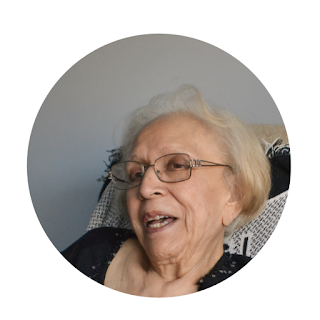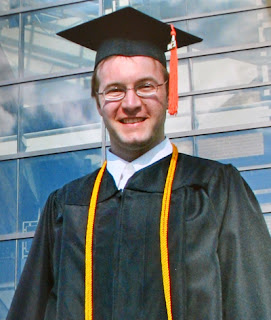Mama Boss Tells It Like It Is
 Carmen Munoz Crites isn't afraid to go after what she wants.
Carmen Munoz Crites isn't afraid to go after what she wants.As a girl, Carmen's mother said to her, "I don't know about you. I try so hard to make you into a lady." But Carmen replied, "Mom, give it up. It's never gonna happen. I'm sorry, I can't do it."
Carmen's mom understood this about her daughter. "I know, I know," she said, "If any
body tells you you can't, you're gonna say, 'Watch me while I do it.'" And that has pretty much been the story of her life.
Just out of high school, Carmen got a job as a bookkeeper in the machine shop.
"I lied through my teeth, 'Oh yeah, I know all about bookkeeping,'" she said. She immediately enrolled in business school, and would eventually convince her boss to let her take over for a retiring salesman.
"Oh, he thought that was funny," Carmen said, "because at the time General Motors and the auto industry had been very chauvinistic." So Carmen told him, "If I don't sell, you don't pay me because it's on commission. If I don't sell for you, you lost nothing."
He laughed and told her, "Go ahead."
Carmen drove up to Buick Flint every day for two weeks straight, and would wait in the lobby each day trying to get an appointment. Finally, the receptionist helped her out.
"She says, 'Carmen, you're not going anywhere are you?' I said, 'Gloria, I'm not going anywhere.' She said, 'I'll tell you what — someone's gonna see you tomorrow."
And that was the beginning of Carmen's success in sales. But after years working for the machine shop, when the owner's son saw Carmen's paycheck he told her, "There isn't any woman that should make that kind of money, much less a Mexican — unless she's playing baseball." Twenty minutes and a few choice worlds later, Carmen had cleaned out her office. She signed the lease on her own building the following Monday.

Carmen opened Munoz Machine Products in 1984. "Over the years I had earned a reputation. I got an award from General Motors as worldwide supplier of the year about six or seven times in a row," she said.
Carmen traveled throughout Europe and Japan, and even met President Clinton at the White House as a small business owner. But one of her most important projects was her work with troubled teens. They were former gang members, and Carmen gave them the opportunity to learn a trade at her shop. What's more than that, she provided the tough love and guidance they needed.
"What, you were born in the ghetto? So was I. So what?" Carmen would say. "I don't take well to excuses I just don't."
She encouraged them to get their GEDs, tried to keep them out of trouble, and helped them realize they controlled their own destiny.
 She didn't know it at the time, but they began calling her "Mama Boss." And the trust and rapport that she build with them lasts to this day. When they heard Carmen had started hospice care, about 15 of them came to town to visit her.
She didn't know it at the time, but they began calling her "Mama Boss." And the trust and rapport that she build with them lasts to this day. When they heard Carmen had started hospice care, about 15 of them came to town to visit her."It's good to see that they've done something with their lives," she said. But she also told them: "I wish you all stopped telling people I saved your life. I didn't, you did. You saved your own. All I did was push the door open."
But Carmen acknowledges the impact the program had, both on the young people she worked with and on the community.
"It stopped a lot of violence in Southwest Detroit," she said. It's something she can look back on and know that she made a difference.
It's hard for her now that she has terminal cancer and is losing her sight. She wants to be productive, but her physical limitations are a challenge. "I get very frustrated since I can't drive," she said, but she still has the same fiery spirit that has propelled her all her life.
"I'm as bossy and as mouthy as I've always been," Carmen said.
So when her doctor told her he could tell her more or less how much time she had, she said, "Hold on, young man. I don't see any water on that floor you're walking on. You don't walk on water. I don't need you to tell me anything. When my time comes, my time comes."
Right now she's receiving home hospice at her daughter Mary's house. Carmen is familiar with the program because she volunteered at Angela Hospice back in 2010 until her husband got sick. He also had home hospice care from Angela Hospice in 2016.
"It's been a busy life," said Carmen, mother of three and grandmother to five. "Tell me here I haven't been."
"My dad used to say, 'You start to die the day you're born.' So what do you want me to do — sit here and worry about it?"
 |
| Carmen came from a large family. She was the youngest of 6 boys and 9 girls. Her father started the first Spanish newspaper in Detroit. |
The Wit & Wisdom of Carmen Munoz Crites
I’m a crabby old lady, and I was a crabby young one too.
If someone else can do it, you can do it. The only time you are ever going to fail is when you say, "I can’t." No one else can tell you you will fail.
I’m as bossy and as mouthy as I’ve always been.
"You see this cane?" I said. "It helps me walk but it’s good for something else too. It’s good for breaking legs. Try me."
How are you going to get anywhere if you don’t try? What are you going to do, sit there all your life?
My dad always said, "Remember, there is no such thing as one-sided or even two-sided. Look around you. What do you see around you that God created that’s two-sided? And don’t let anyone think for you."
When we hire we look for someone smarter than we are. Do not look because you have to be the smartest one in the house. You always look for someone smarter.
I owned a manufacturing plant in auto parts. Except my parts are all long gone in the field. So if your engine or transmission don’t start, don’t blame me.




Comments
Post a Comment